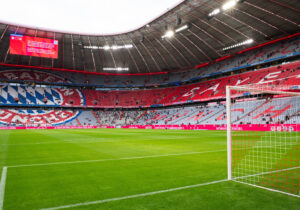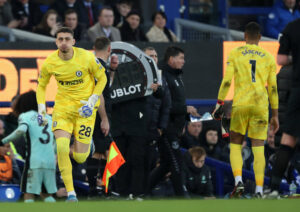While Liverpool fans have been enjoying their club’s best-ever season in the Premier League, the players themselves have been playing too much football. In December alone, Klopp’s men played nine matches. Five in the league, one in the Champions League, one in the Carabao Cup and two in the Club World Cup. In January, Liverpool will play seven matches.
This has a major effect on the quality of football, mainly because of player fatigue. Overuse affects some footballers more than others, especially those that have to travel long distances to play with their national sides. For example, Son Heung-min played in 78 matches from August 2018 to August 2019, travelling an ungodly distance in that time frame. Playing this amount of football is not sustainable, but Germany’s winter break has done well to combat such burnout
Premier League Footballers Have the Toughest Fixture List
The Worst Offender
The Premier League is the worst offender of the lot. This is mainly because of its gruelling but fan-pleasing holiday fixture list. In general, however, footballers are playing more and more, with an ever-shortening summer break. The period between seasons used to be from May to August, with every other year an international tournament taking place. The break has since been drastically cut. In 2019, Champions League qualifying began on June 25, while many of Europe’s larger sides went on lengthy tours throughout North America or Asia beginning in July.
In the past year, Sadio Mané played in the Champions League final on June 1, and then almost immediately went to join his national team for the Africa Cup of Nations. The tournament kicked off on June 23. Senegal lost to Algeria in the tournament’s final on July 19, playing seven intense matches in the process. Mané then had a measly three-week gap between that final and Liverpool’s first Premier League fixture against Norwich City on August 9. He came on as a substitute in the second half. This means that Liverpool’s number ten had an off-season much shorter than three weeks, the minimum a player needs to fully recover. Just like Son and many others, Mané is playing too much football.
Money Talks
While this problem is recognized by players, managers, and many fans, it is most likely here to stay. The more games clubs play, the more those same clubs collect in profits. Barcelona sold more than 100,000 tickets when they play in a sold-out Michigan Stadium. The club thereby increased its fan base and subsequent shirt sales. The Spanish Super Cup was held in Saudi Arabia this year. Instead of being a two-legged final, it was a mini-tournament consisting of four sides.
The amount of travelling that players do just with their clubs is already astounding. If one then factors in travel for national side duty however, the numbers begin to really rack up. In the 2018/19 season, Mané travelled over 60,000 miles, while Allison Becker covered almost 50,000 miles. Playing too much football comes at a real cost to the pros and their ability to shine on the pitch. Fifty-three players were injured during this season’s Premier League holiday fixture list. It is quite incredible that the likes of Mané and Son are able to remain fit, let alone perform at a high level. While English and Spanish clubs are pushing their employers to the max, Germany has instituted a more manageable fixture list.
Germany Has a Much More Forgiving Schedule
During the first half of this season, Bundesliga clubs only had one set of midweek league fixtures. The first round of the DFB Pokal is played before the league kicks off. The second is midweek. That is a total of two domestic midweek fixtures in the first half of the season. In comparison, Liverpool have played six domestic midweek fixtures, in addition to their six midweek Champions League matches.
During the winter break, Bundesliga players receive more of a break than many Premier League players do during the entire year. The last fixture of the Hinrunde was on December 21. The Rückrunde does not begin until this Friday, January 17. That is nearly a month-long break, giving players the proper time needed to recover. Think of the number of injuries that would be avoided if the Premier League adopted a similar schedule.
The Problem May Only Get Worse
While the Premier League will never completely scrap its holiday fixture list, the FA needs to change something. Lowering the number of matches played in such a short period is a good start. Leicester City played Liverpool on December 26 and then went to West Ham United just two days later. That is extreme, even for England. With a less congested fixture list, English teams may perform better in European competitions, and stars such as Harry Kane might not pick up serious muscle injuries caused specifically by overuse. At the end of the day, however, money talks. As long as viewership numbers and international fan bases continue to grow, the problem will only get worse.
Main Photo






